Image: Jessica Karuhanga, being who you are there is no other, 2.5 minutes video, still. Image courtesy of artist.
Curated by Gary Varro, Guest Curator
The exhibition Projections addresses perceptions of queerness, sexuality, race, and gender while considering the expanded potential of Indigenous, Black and Queer futurisms.
In their video works, Eshrāghi and Karuhanga express concerns rooted in freedom, defiance, empowerment, presence and self-affirmation, and the disposition and power of the independent projected image brings with it characteristics that align with these concerns.
The artists’ exploration of pleasure and self-care is evident in their videos capturing subjects in nature and/or natural environments, non-verbal narratives, and acts involving touch, desire, movement, ceremony, ritual, and expressions intimate and spiritualized.
Presented within the gallery in spaces created to reference film theatres/projection booths and other voyeuristic contexts, the viewer can watch, observe, consider, anticipate, and dwell in the fantastication of the projected scenarios. In doing so, each work allows the intimate space, within separate alcoves, to assemble personal narratives, individuality, and criticality within the contexts of territory, ownership, and the physical and cultural occupation of space and land.
Léuli Eshrāghi is a Sāmoan/Persian/Cantonese interdisciplinary artist, writer, curator and researcher working between Australia and Canada. Ia/they intervene in display territories to centre global Indigenous and Asian diasporic visuality, sensual and spoken languages, and ceremonial-political practices.
Jessica Karuhanga is a first-generation Canadian artist of British-Ugandan heritage whose work addresses issues of cultural politics of identity and Black diasporic concerns through lens-based technologies, writing, drawing and performances. Through her practice she explores individual and collective concerns of Black subjectivity: illness, rage, grief, desire and longing within the context of Black embodiment.
Gary Varro is a curator and visual artist based in Regina, where in 1996 he established and continues to present Queer City Cinema Festival and Performatorium Festival of Queer Performance. Gary is also a freelance curator.
Artists ↑
ESSAY ↑
Projections
By Gary Varro, guest curator
I have curated and organized the festivals Queer City Cinema and Performatorium for nearly 25 years – programming challenging, difficult, experimental, provocative, playful and sublime film, expanded cinema, performance art and visual art from around the world. Projections is an extension and reflection of Queer City Cinema’s programming, specifically as it relates to Sensing Pleasure – the name and focus of this year’s festival on pleasure, sensuality and radical self-care.
Both Karuhanga and Eshrāghi were slated to perform at this year’s Performatorium, however, due to the precarity of the pandemic and scheduling conflicts, this was not possible. This exhibition of their video work was designed as an additional component to their performance art work and to expand the scope and impact of this year’s festival.
Queer City Cinema’s commitment to programming work by QTBIPOC artists has been one of the ways in which it has ensured that diverse representations and expressions are part of a discourse around queer identities. In doing so, Regina audiences have had the opportunity to witness and experience voices and identities that speak to a variety of concerns and issues including racism and transphobia.
The artists that make this work are invested in creating the space for personal and collective experiences, past and present, and a future that reimagines QTBIPOC identities. These experiences are about what it feels to be Queer, Black, Trans and Indigenous, and carry with them histories of violence, oppression and marginalization, but also, as a consequence of their proactive art making - fortitude, defiance, resistance, possibility and projection – what lies ahead?
In conceiving the framework and selecting work for this exhibition, it was clear that the inherent characteristics of the projected image could conceptually align with and compliment the highly personal and activist work of multimedia artists Jessica Karuhanga and Léuli Eshrāghi. With film, TV, the moving image, and most potently, the advent of personal computers and smart phones, we have become a culture of voyeurs, consuming a constant everyday barrage of images beaming back at us. Screens are the way we see the world now and, for better or worse, inform what we know, how we feel, and who is doing what. Projections speaks to the moving image as a powerful tool for transition and change in a time when both are necessary and possible. Conceptually, through the quiet, simple act of watching and witnessing, we can come to see how the video work of Karuhanga and Eshrāghi projects presence, self-affirmation and consequently possibility and a reimagined future for Queer, Black, Trans, and Indigenous communities.
Another way in which Projections underlines ideas and concerns with presence and self-affirmation is the connection to and inclusion of the body within the natural world. All of the videos are shot in or reference landscapes that serve to embellish and/or question/critique relationships to nature, the body and land. Through movement, sometimes kinetic, sometimes still, as in the work of Karuhanga, and within sacred ancestral ceremonies and rituals as seen in Eshrāghi ‘s work, we see the artists confront historical and current contexts that have seen them absent or disallowed from these environments but, conversely, are also the source of healing and pleasure. Through these interventions in the ‘wild’, the artists are enacting moments of reclaiming of identity, territory and making Queer, Trans, Black and Indigenous despair, grief, longing, reverie, desire and empowerment manifest.
With bodies in or as landscapes as a shared concern and focus of these video works, another aspect of Karuhanga’s and Eshrāghi ‘s work emerges around intimacy, self-care and pleasure. In creating curtained off/sequestered alcoves in the gallery for each projection, viewers are encouraged to take the time and space to witness each video alone/alone together in a kind of private projection booth of sorts. In doing so, this not only allows the viewer the opportunity to focus on what they are seeing, it also implicates them as a voyeur and asks them to observe, consider and dwell in the space. Further, the viewer’s body, sitting or standing, is fully and completely exposed to the large projected image in front of them – the light emanating out representing ideas around implication, enlightenment, illumination and both concealment and uncovering of truth and identity.
In Projections we witness bodies that are engaged in acts of improvised movement/dance, touching of skin, stillness and breathing, ritual and images of exposed skin, bare breasts/chests, kink, and direct eye contact with the viewer, establishing moments of intimacy and vulnerability. This is both meant to address issues around discomfort as it pertains to ‘the gaze’ and how Queer, Trans, Black and Indigenous communities are accustomed to feeling shame in a hetero-patriarchal, homophobic, transphobic and racist world. Conversely, these images are also about comfort and embracing that which is sensual and pleasurable. As a form of radical self-care, these videos depict scenarios of healing, discovery, presence, sexuality, desire and tenderness, and bring into focus the need for Queer, Trans, Black and Indigenous communities to support, nurture and care for each other.
This exhibition of video works by Jessica Karuhanga and Léuli Eshrāghi represent but two artists who are engaged in the daunting task of engendering awareness of Queer, Trans, Black and Indigenous identities. Through lens-based technologies, writing, curating, researching, drawing, and performance, they are representative of a new generation of Queer, Trans, Black and Indigenous artists who engage in a powerful combination of traditional knowledge, personal and cultural histories, diasporic concerns, and current and contemporary references to form incisive and impassioned inquires for the purpose of reclaiming lost identities and contributing to the urgent task of making necessary change. What lies ahead? The future is now.
I would like to thank the Dunlop Art Gallery for this opportunity, especially Tomas Jonsson, Curator of Performance and Moving Image for inviting me to do this and Preparator Jeff Meldrum and his sewing skills; and Jessica Karuhanga and Léuli Eshrāghi for their willingness, time, care and the personal, vulnerable and powerful act of sharing through art.
Gary Varro is a curator and visual artist based in Regina, where in 1996 he established and continues to present Queer City Cinema Festival and Performatorium Festival of Queer Performance. Gary is also a freelance curator.
Installation Images ↑
Photos by Don Hall
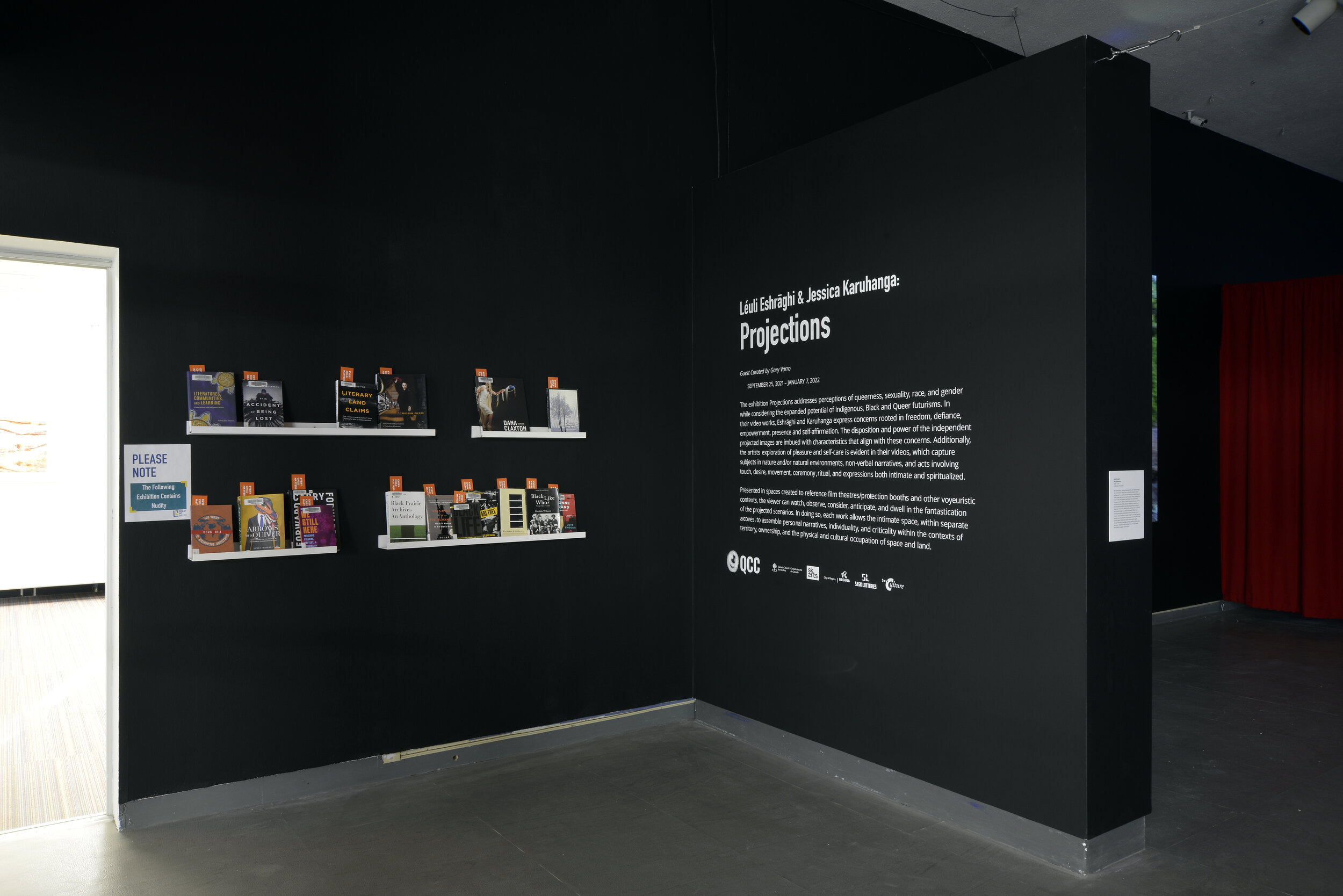
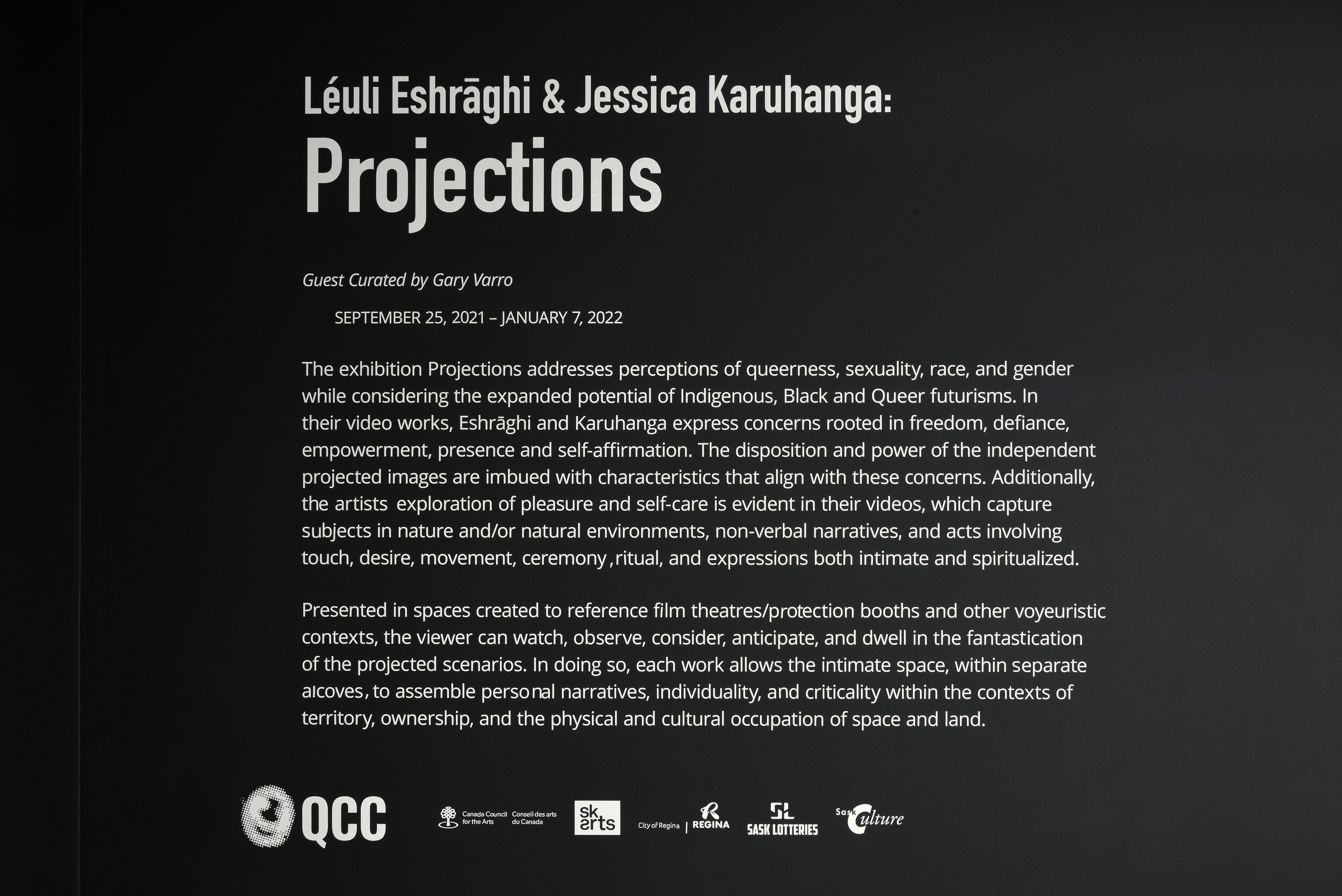
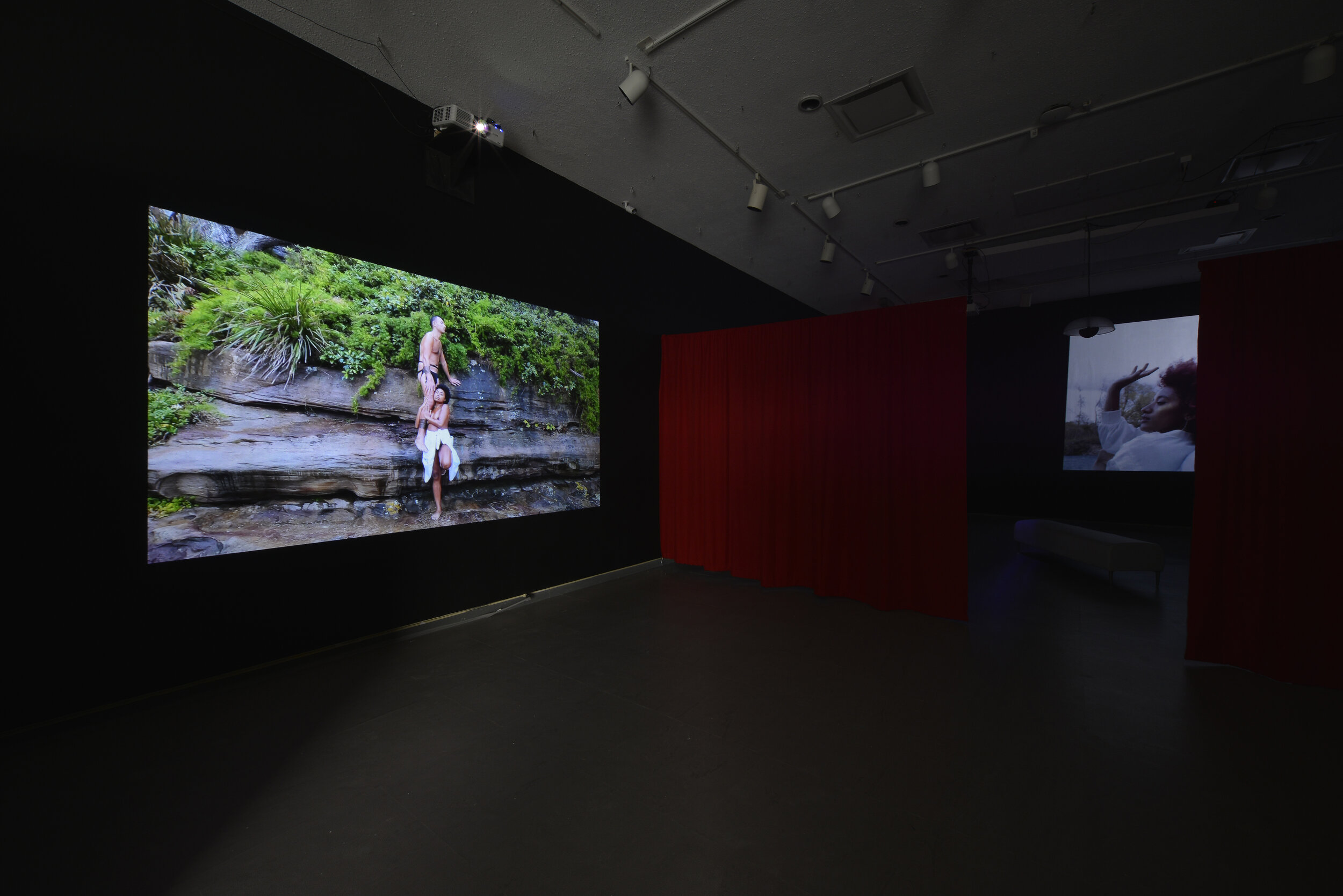
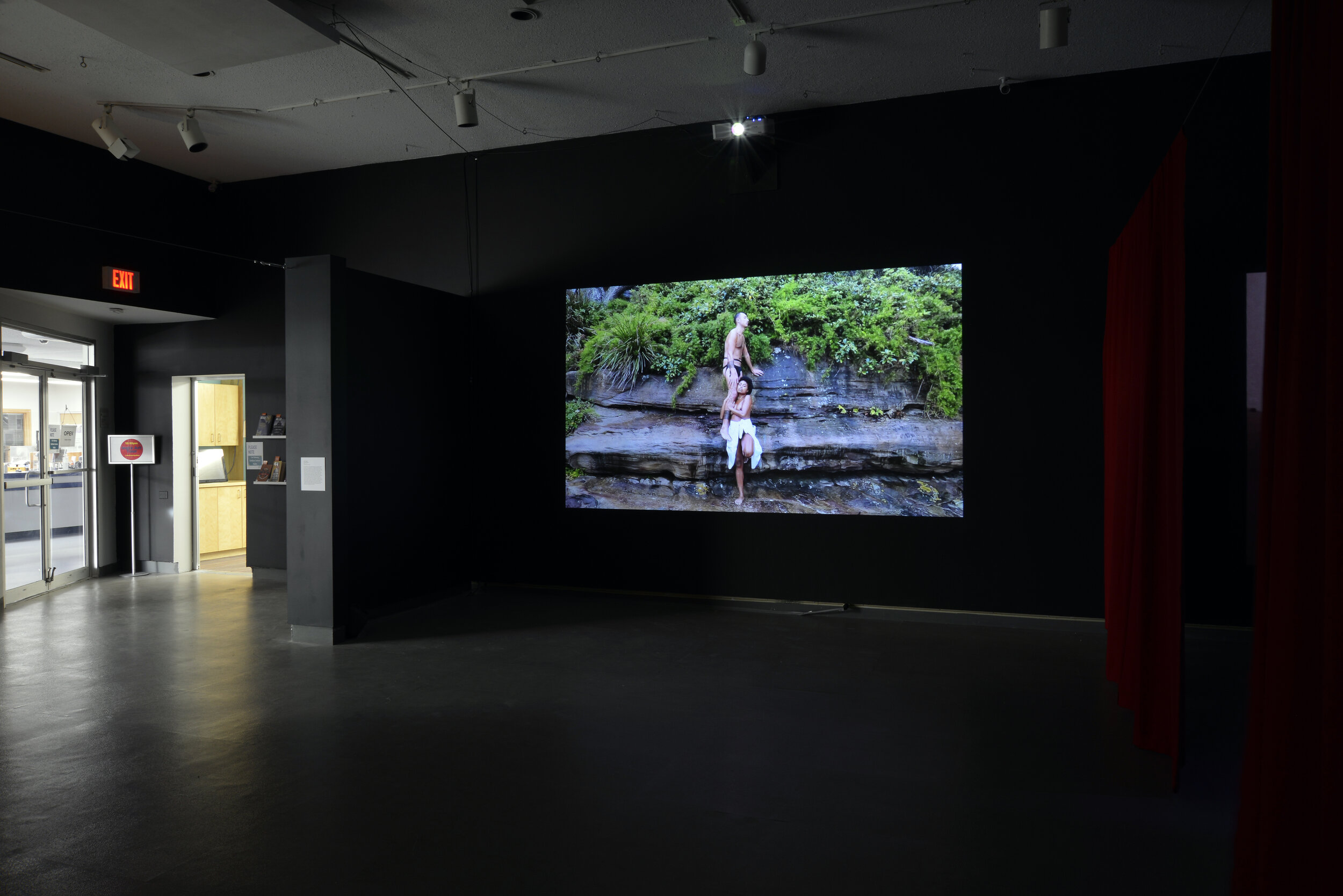
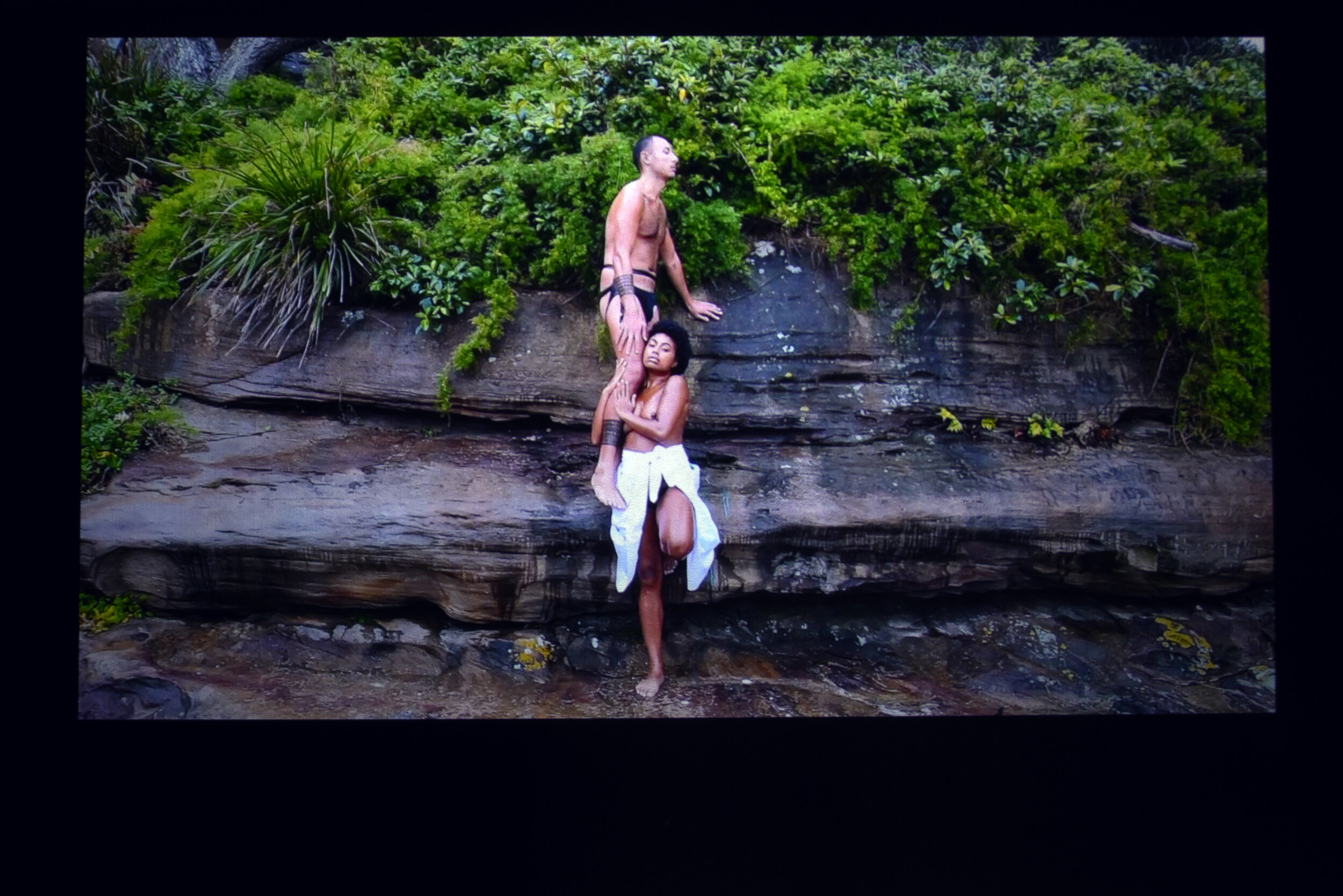
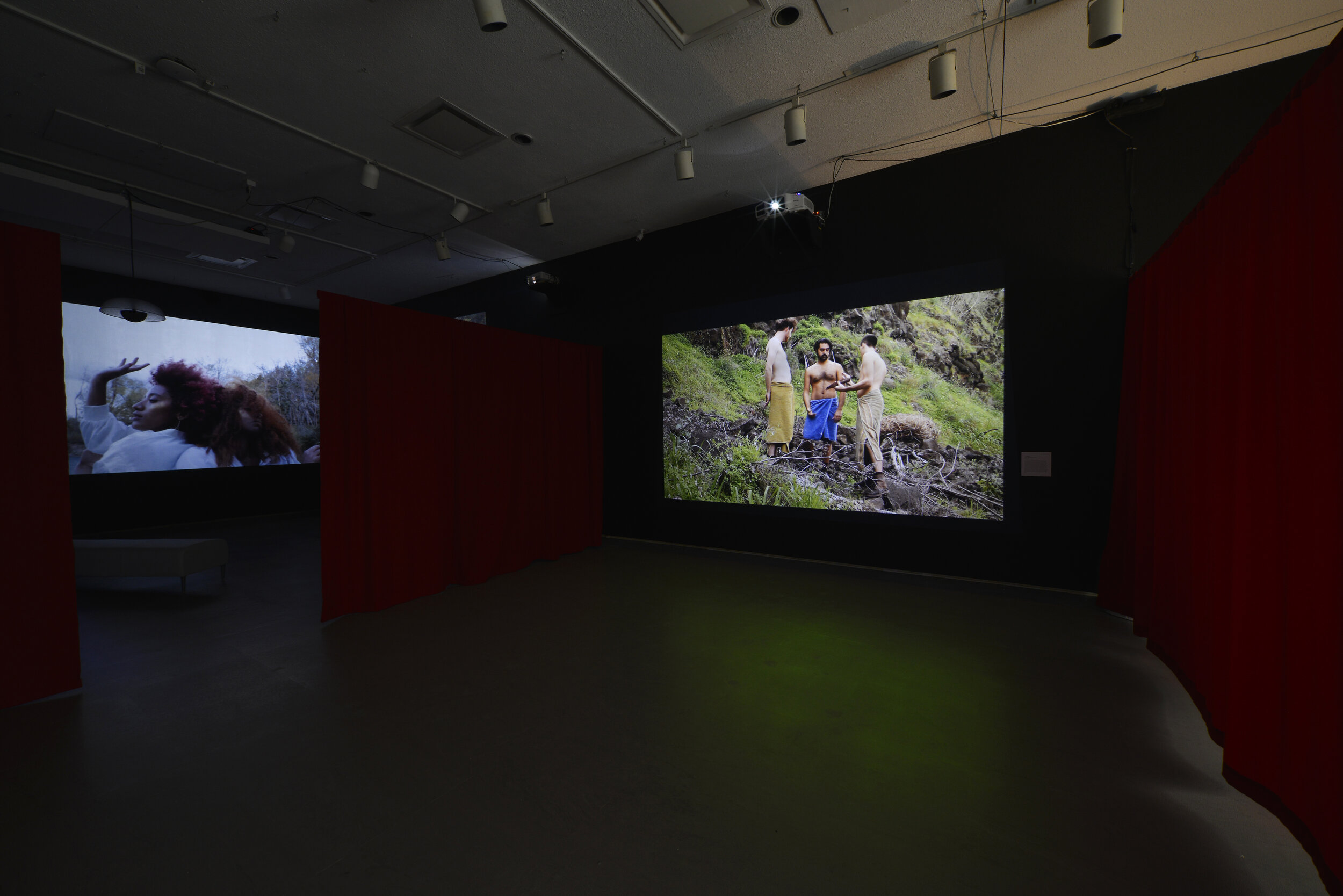
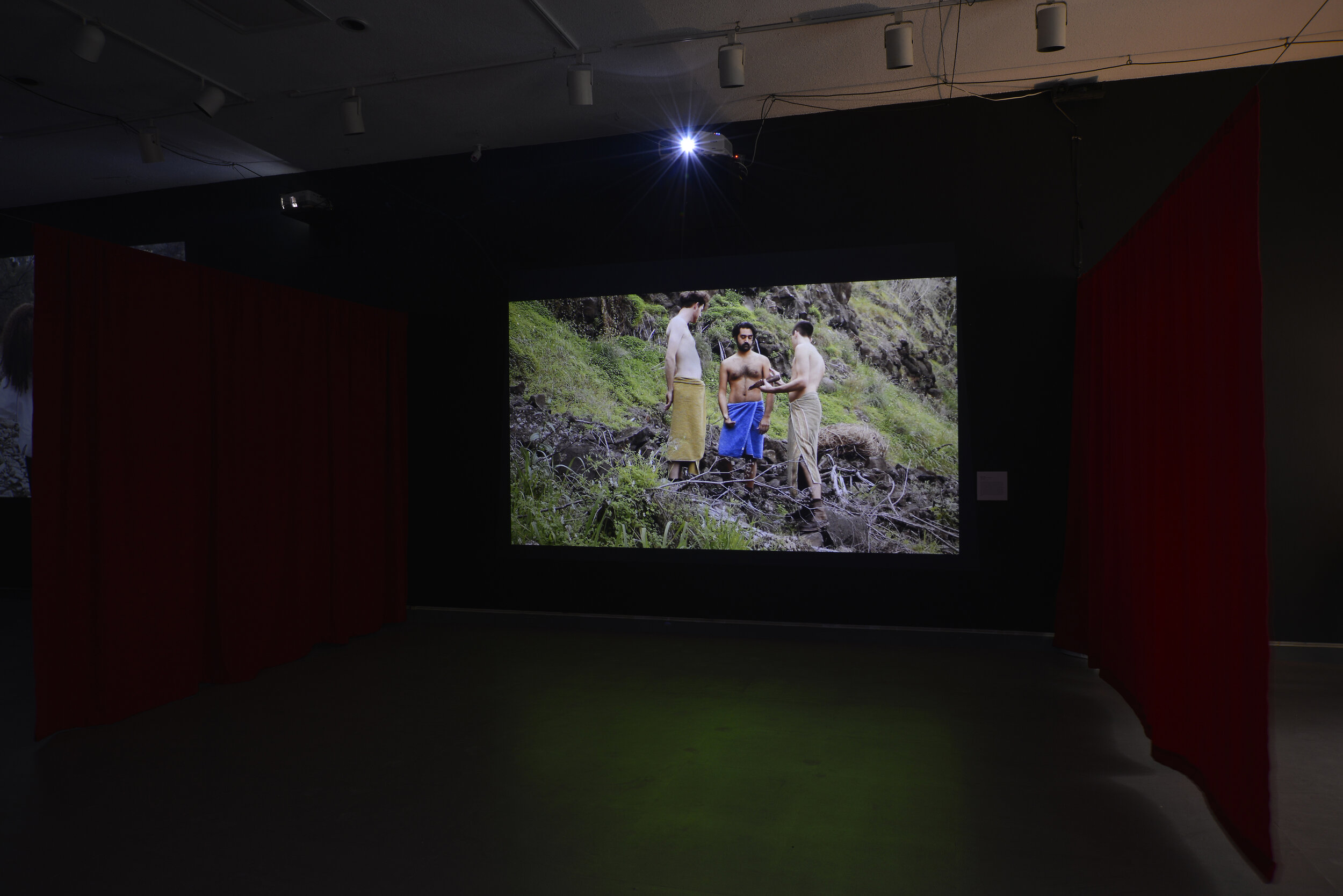
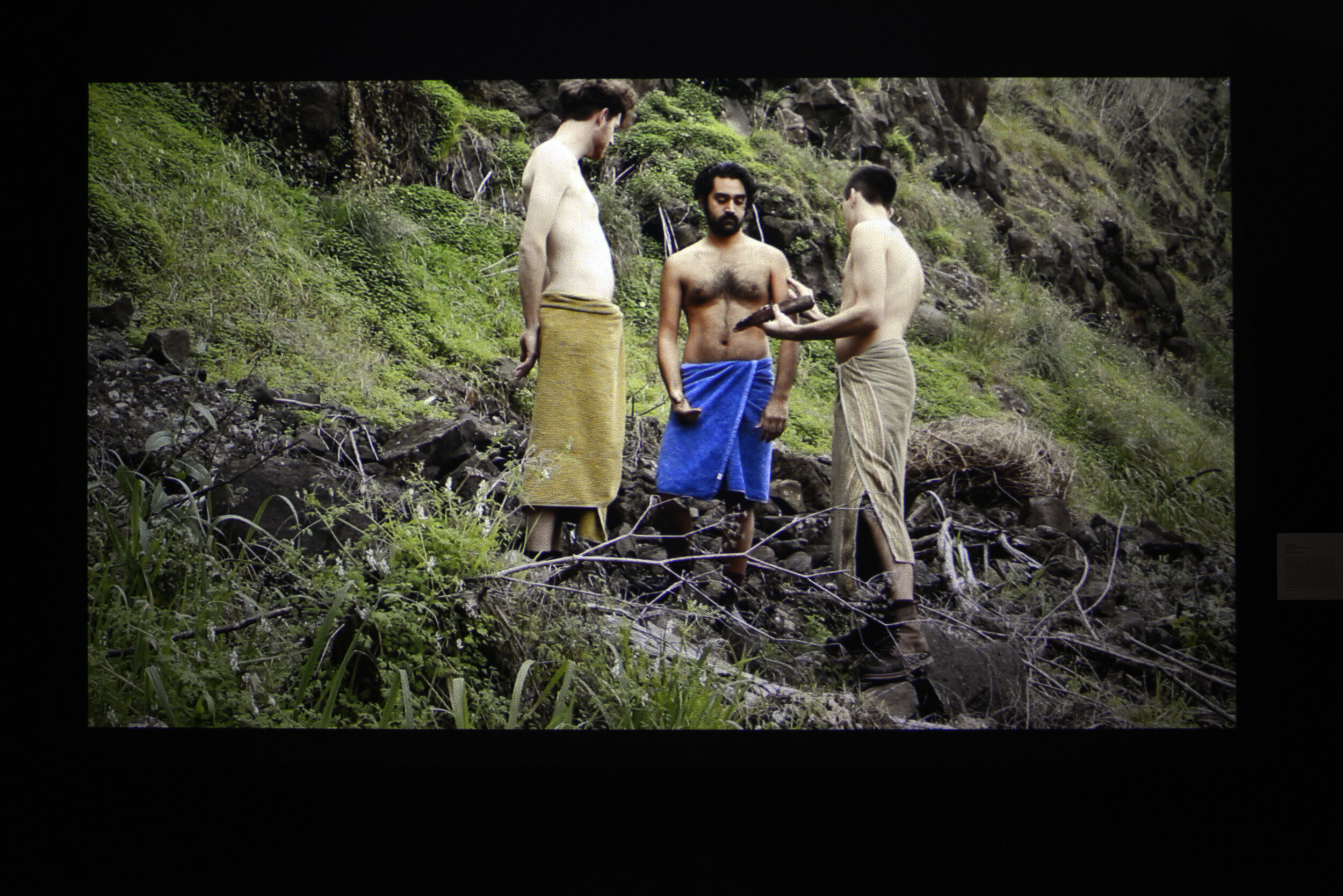
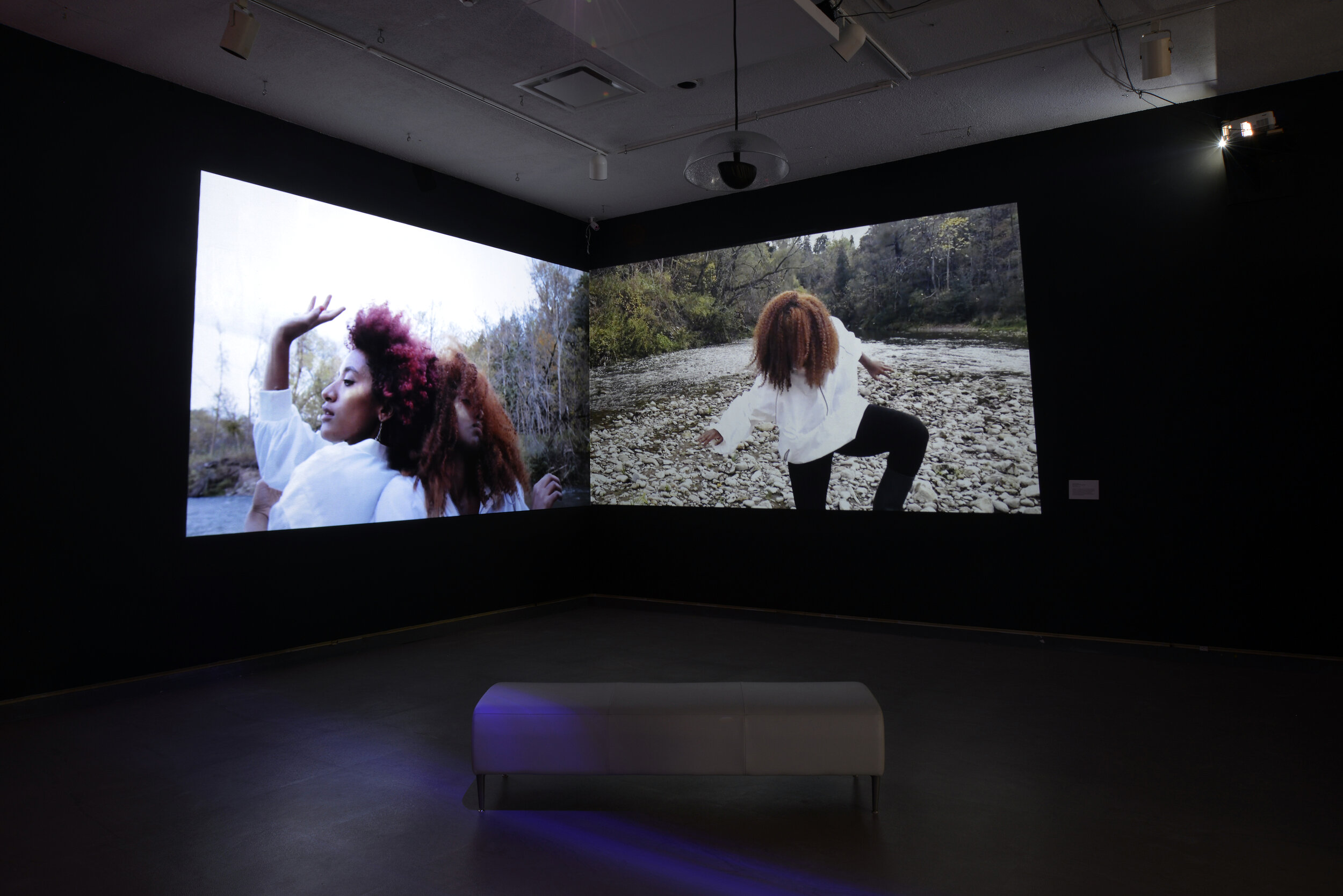
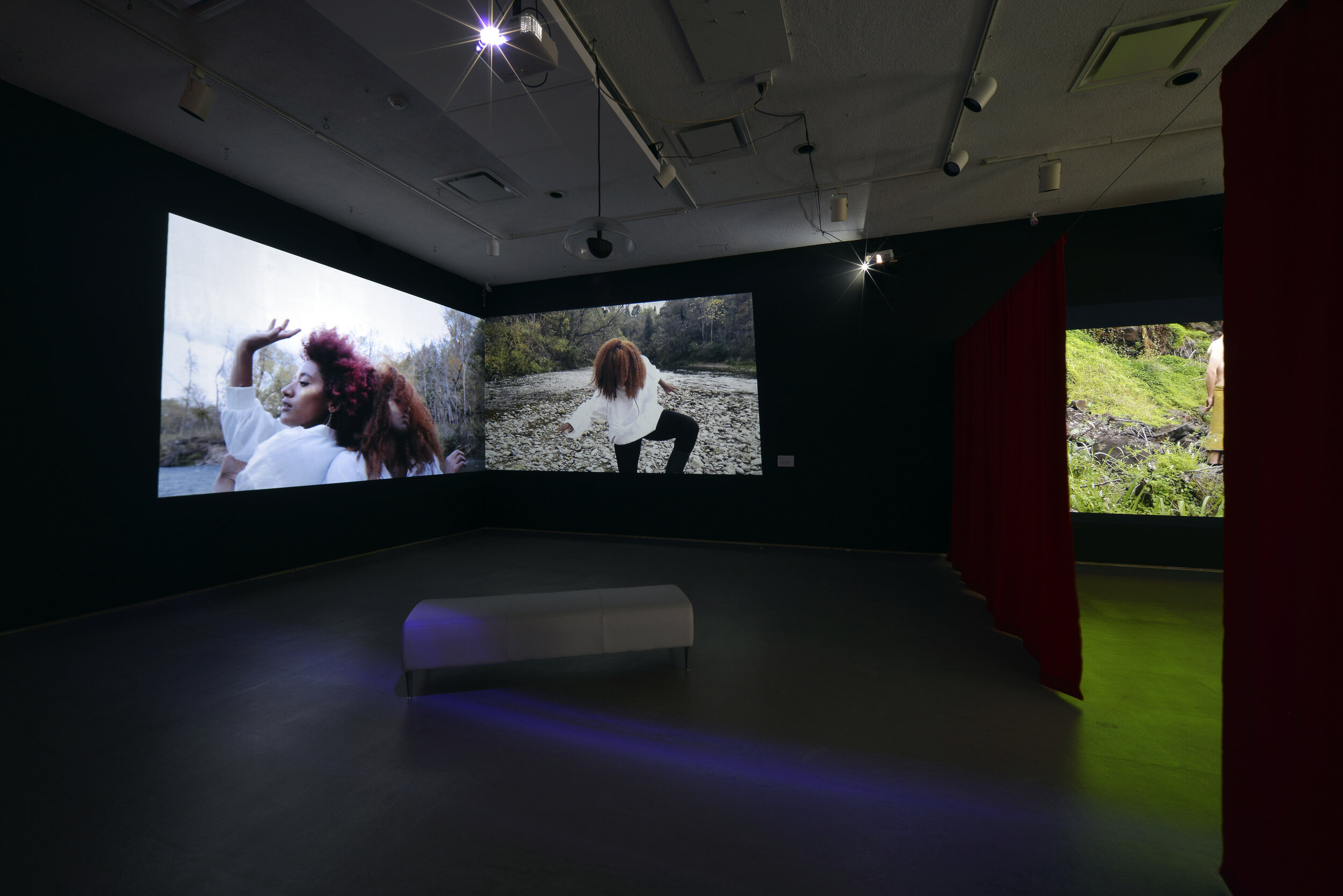
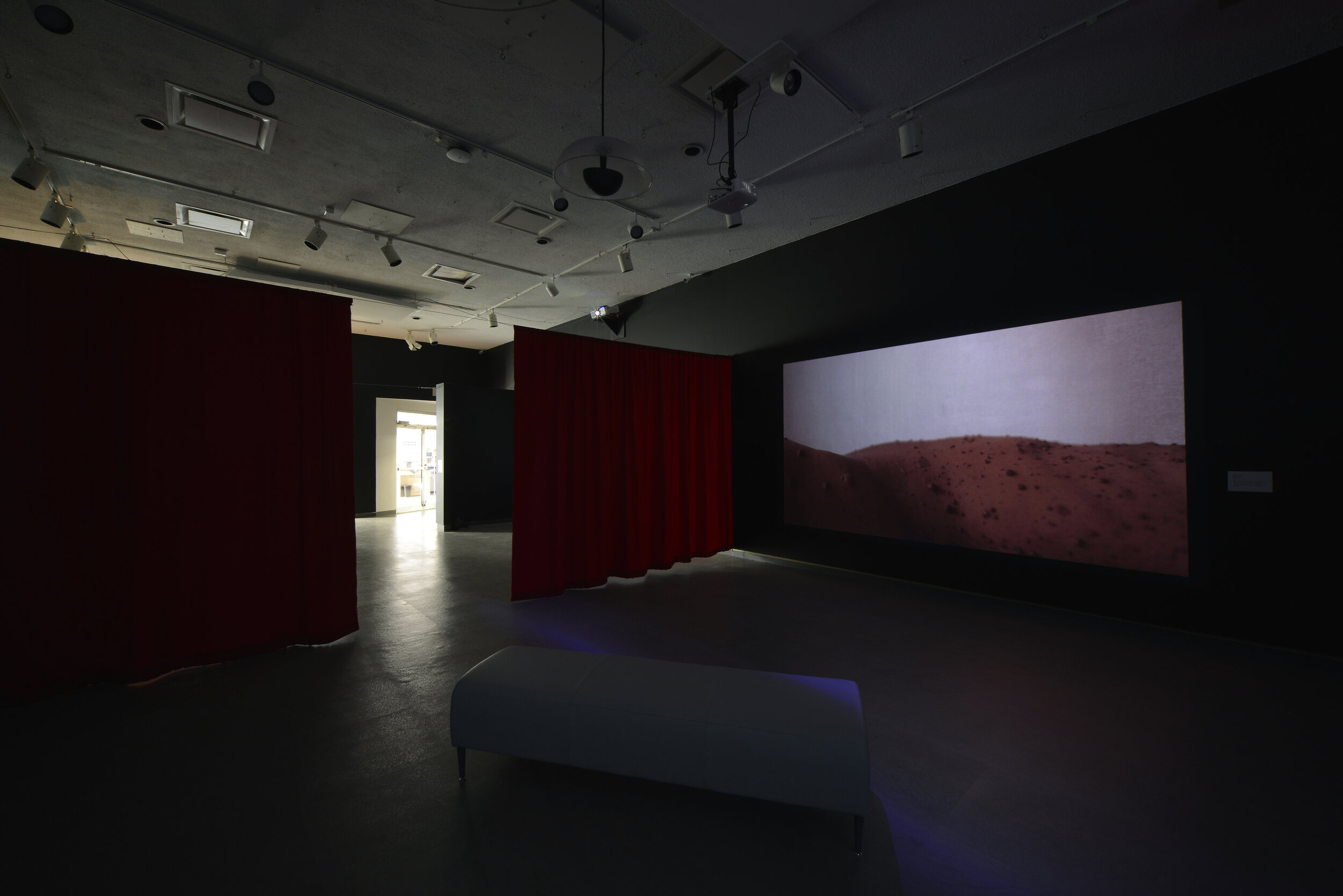
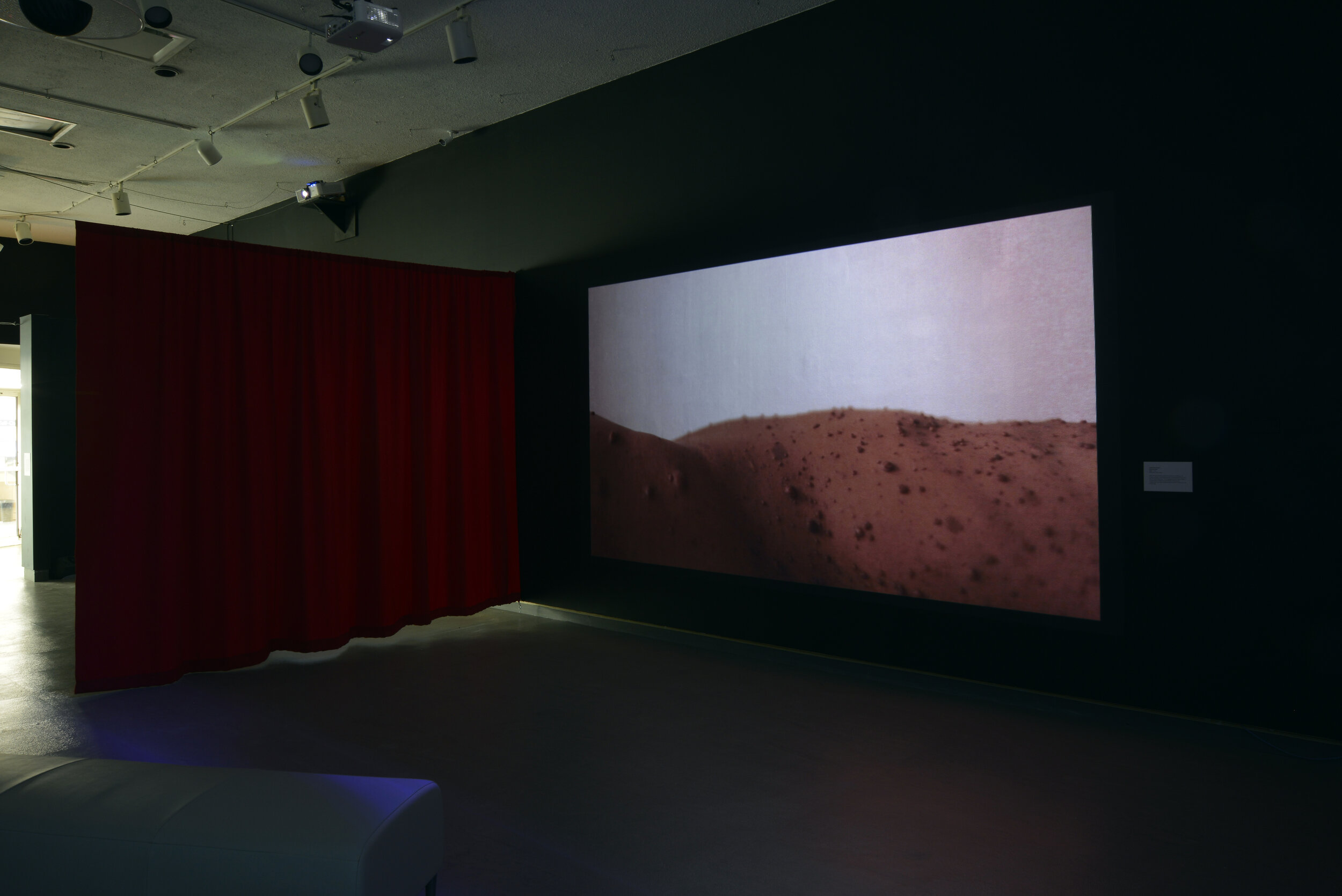
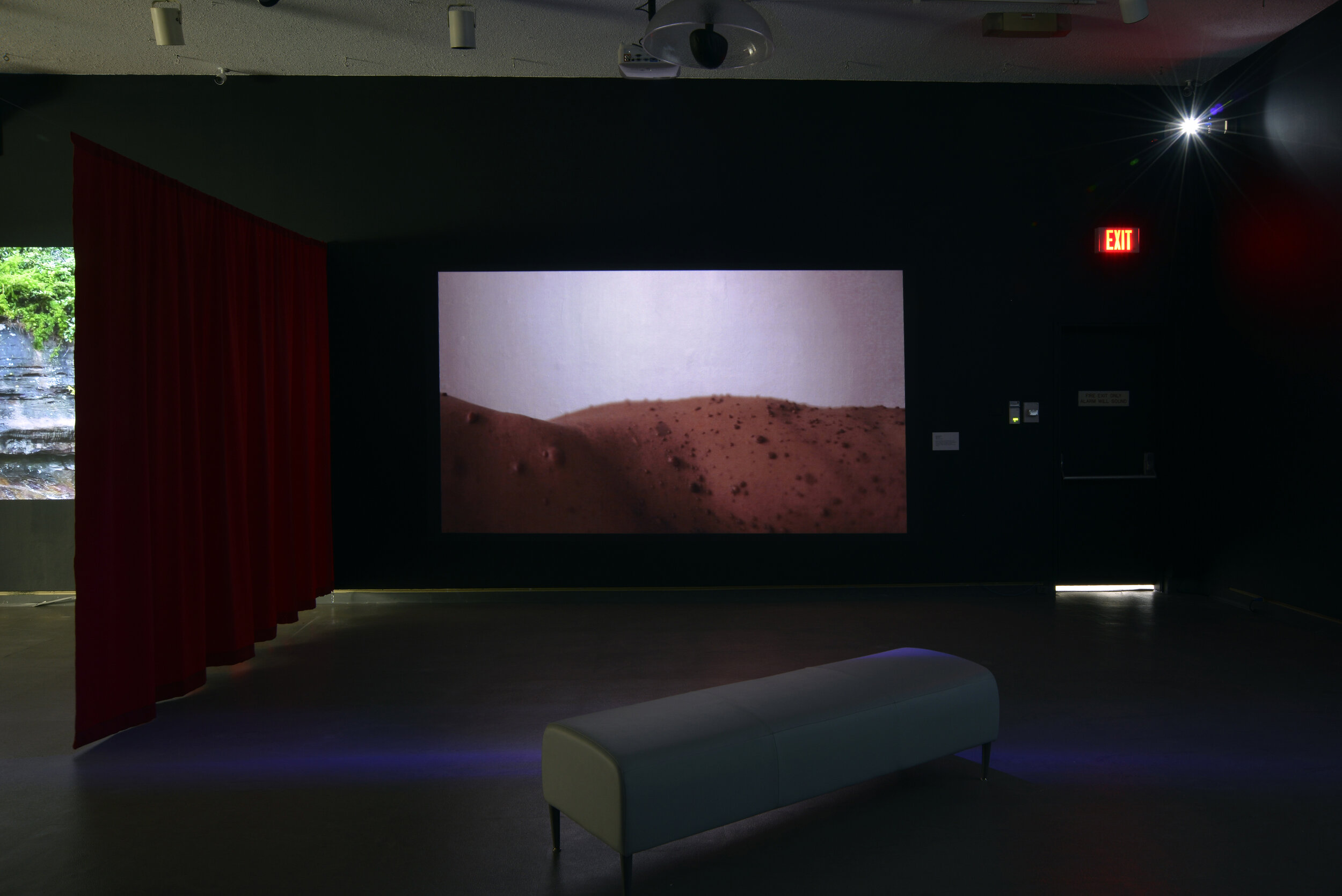
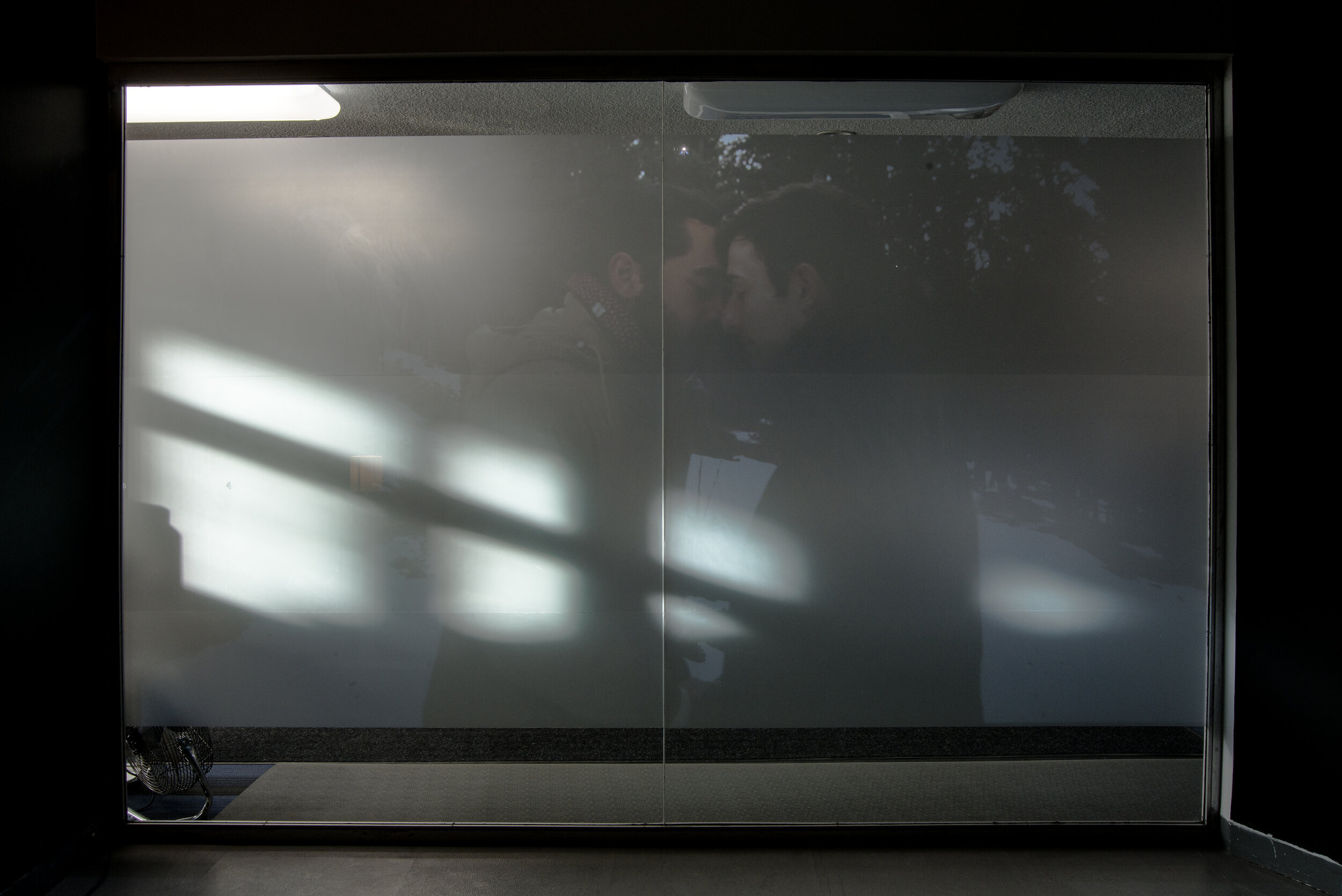
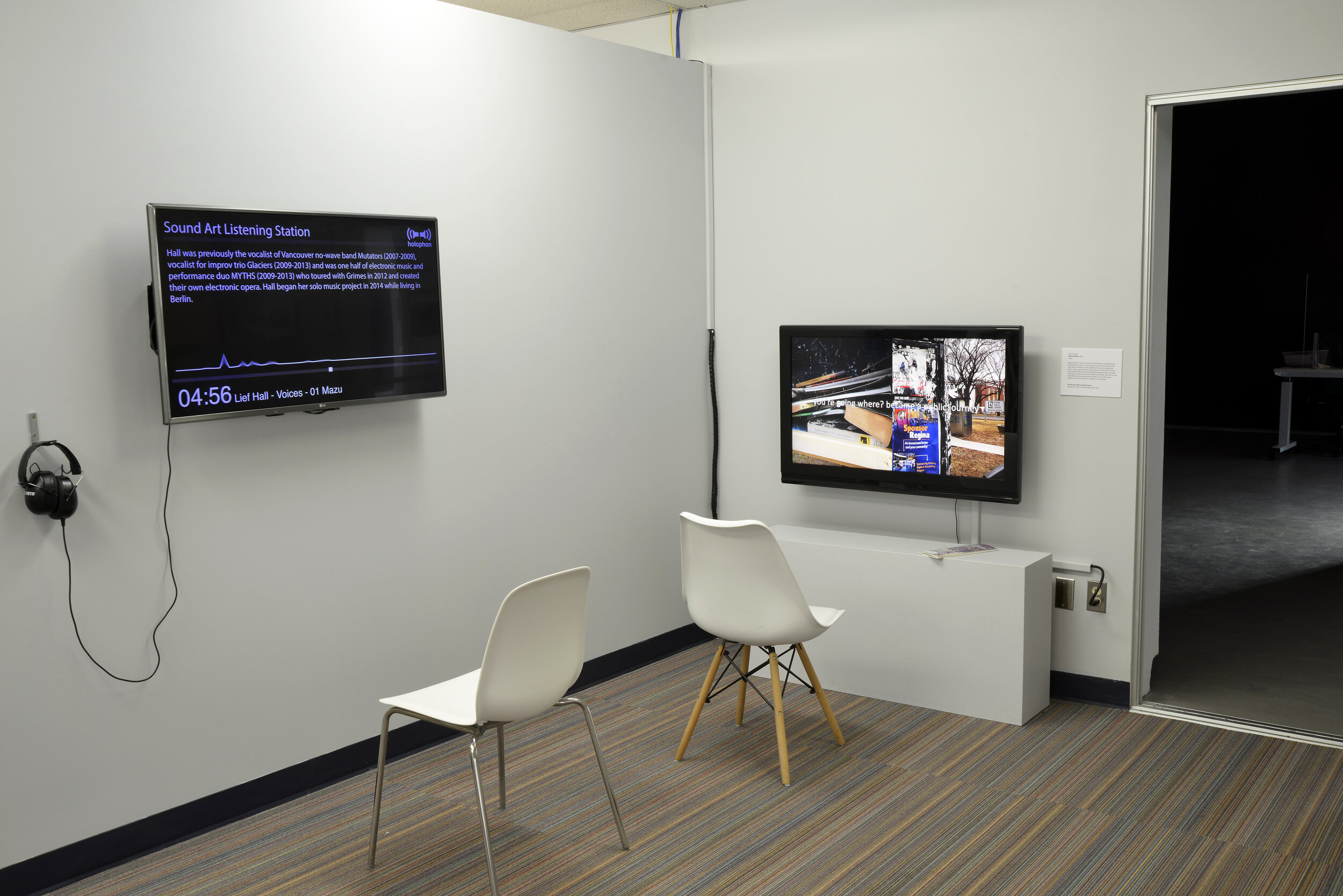
Media ↑
Projections at the Dunlop Art Gallery The Carillon

